MERCEREAU REPORT # 10 – Winter COVID Update, CoEnzyme Q10 Boost for Hearts and Brains

[ez-toc]
Latest Update on COVID Hospitalizations and Winter Incidence of COVID and Flu
The CDC has issued the most recent prediction of COVID for the winter. “According to CDC’s respiratory disease outlook, the agency expects a “moderate” COVID-19 wave with about as many peak hospitalizations as last winter. Last winter’s COVID-19 hospitalizations peaked at about 44,500. While it’s a significant number, it is less than a third of the all-time peak in January 2022 of more than 150,600 weekly hospital admissions.” https://www.usnews.com/news/health-news/articles/2023-10-06/new-covid-19-hospitalizations-decline-for-3rd-straight-week
While this looks hopeful, let us also be aware that we are heading into peak flu season and also RSV (respiratory syncytial virus). What does this mean for us in terms of wearing masks? Best to wear a mask when indoors (stores, etc.) though not necessary at this time when outdoors.
The CDC has issued a statement that they do not expect this flu season to be any worse than last years. Here is what they say: “Flu activity in the United States is currently low and although the timing, intensity, and severity of the upcoming flu season cannot be predicted, it is likely to increase over the fall and winter. Flu vaccination remains the best way to protect yourself and your loved ones against flu and its potentially serious outcomes. RSV activity in the United States is also low currently and is likely to increase.”
https://www.cdc.gov/respiratory-viruses/whats-new/2023-2024-season-outlook.html
Have you heard about CoEnzyme Q10 that our bodies produce that supports our hearts and brains?
Actually, CoEnzyme Q10 (CoQ10) is a very valuable chemical produced by our own bodies to reduce inflammation and help us to heal. Our hearts and brains rely upon a healthy level of CoQ10 to function properly. We produce less as we age but this can be corrected easily.
One little problem: our bodies max out production of CoQ10 in our early adulthood. Then, for every decade after our early 20s, production drops by about 20%. So…how old are you? What do you think your own level of CoQ10 might be?
Aging takes many forms – some of which greatly involve our hearts and brains. Having any cardiac conditions? Or, having difficulty with memory or other brain related issues?
Could be that your CoQ10 level is low.
If you are taking a cholesterol lowering drug called a statin, you need to know that statins block the production of CoQ10 in our bodies.
What to do? Here are a few ideas:
- Ask your physician to order a lab checking your CoQ10 level.
- If you are on a statin, you should consider adding CoQ10 to your list of supplements. It comes in different forms: CoQ10, Ubiquinol or Ubiquinone – the last two are more absorbable than the plain CoQ10.
- If you are on a statin and appear to be developing dementia, it may be due to the lack of CoQ10 in your brain. Ask your physician to consider cancelling the statin to see if your dementia symptoms are reduced.
- If you have congestive heart failure, it is possible that adding CoQ10 would reduce the severity of that.
Our bodies are amazing as we all know. As we age, however, we need to be aware of the changes. Here is some additional information about CoQ10:
https://www.lifeextension.com/magazine/2013/1/coq10-the-longevity-factor
https://www.healthline.com/nutrition/coenzyme-q10#TOC_TITLE_HDR_11
 Did You Know that Some Medications Block Certain Vitamins and Minerals?
Did You Know that Some Medications Block Certain Vitamins and Minerals?
It is true that some medications block the uptake of some of our vitamins and minerals. For example, heartburn medications such as Nexium, Prevacid and Prilosec have been proven to block Calcium, Iron, Magnesium, Vitamin C. You can read more about these kinds of medications and nutrient blocking in this article from the National Library of Medicine: https://pubmed.ncbi.nlm.nih.gov/25083257/#:~:text=PPIs%20have%20been%20associated%20with,calcium%2C%20iron%20and%20magnesium%20metabolism.
What about other medications? Some other important vitamin/minerals blocked by medications? Well, steroids block many as do some antibiotics. Best to check out the following chart to see if any of this affects you or your loved ones: https://www.coastalpharmacyandwellness.com/resources/knowledge-center/nutrient-depletion-from-medications/
So, what to do if some of your medications are blocking vitamins and minerals? Talk to your physicians and ask for labs to check for your vitamin/mineral levels of the ones impacted. If you are low, it is simple and inexpensive to replace by taking those vitamins and minerals!
Read More – https://patientadvocates.com/acid-reflux-gerd/
 Healthy Mouth, Healthy Heart: The Importance of Oral Health for Cardiovascular Well-being
Healthy Mouth, Healthy Heart: The Importance of Oral Health for Cardiovascular Well-being
Well, here’s a good one for us: remember our Moms reminding us to brush our teeth? Seems that is better advice now than ever.
“Medical literature is very clear that oral dental health plays a significant role in your cardiovascular health. As odd as it sounds, regularly brushing and flossing your teeth could be what stands between you and a future heart attack.
Research has linked certain oral bacteria from the Streptococcus genus to fatty plaque buildup in heart arteries.
In all people there should be a healthy balance of good and bad bacteria in our mouth (teeth). However, when this balance is upset, it kicks off a chain of events that makes atherosclerosis far more likely to occur.”
What can we do? Well, regular brushing of course. However, even more effective is buying a water flosser (Waterpik makes one as does Oral B among others) that removes all the tiny food particles stuck between teeth, especially in the back molars. Here is a good article that can explain more:
https://www.functionalmedicineuniversity.com/public/1950.cfm
Vitamin D can reduce gum inflammation and promote wound healing after periodontal surgery by strengthening the antibacterial defense of your gums, which is an important supplement for the prevention of periodontal disease. You can ask your dentist and/or dental surgeon about the importance Vitamin D.
Processed Foods: A Short Cut to a Shorter Life?

Kicking the UPF Habit: How to Break Free from Processed Food Addiction
Most of us eat processed foods in our diets – some more than others. Reasons include: time for preparation is limited and costs along with ease of use. However, research is showing that eating a great deal of processed foods may actually lead to shorter lives. Really?
‘It’s like trying to quit smoking’: why are 1 in 7 of us addicted to ultra-processed foods?
It might not be chips for you. It might be chocolate, or ice-cream, or fizzy drinks. These ultra-processed foods (UPFs), which we know are extremely harmful to health, are designed to be hyper-palatable and overeaten. Now researchers believe they are not just hard to resist – they are actually addictive.
What exactly is it that 14% of us are addicted to? Food that is high in refined carbohydrates and/or added fats. UPFs – which the authors define as “industrially produced foods containing ingredients not available in home kitchens” – are the main source of such food. Not all UPFs trigger addiction. Sweets and salty snacks, which are designed for pleasure (and therefore profit), are more likely to be addictive than, say, plant milks and meat alternatives which are also processed, but without the sugar.
What to do? Perhaps little by little start to eat more whole foods like fruits and vegetables and meats. Nutritionists always advise us to “eat the rainbow”!
Unraveling the Brain’s Pain Paradox: Why Your Brain Can’t Feel Its Own Ouch
Well, now that we are all officially “fatheads”, what else can be helpful in understanding our wonderful brains?
Can your brain feel pain itself? Good question. No! “The brain itself doesn’t feel pain. Though the brain has billions of neurons (cells that transmit sensory and other information), it has no pain receptors. The ache from a headache comes from other nerves — inside blood vessels in your head, for example — telling your brain something is wrong.
Black Tea: Your Daily Dose of Diabetes Defense

A Cup of Black Tea a Day Keeps the Diabetes Doctor Away
Do you enjoy a “cuppa” of black tea in the morning? Some interesting news about how healthy that can be. Really? Yes, research has shown that black tea can reduce our risk of developing diabetes. You can read about it here: https://consumer.healthday.com/tea-and-health-2665763795.html
Another benefit of drinking black tea: it promotes heart health and reduces the risk of stroke and can even play a role in lowering blood sugar. UCLA has written an article about the many benefits: https://www.uclahealth.org/news/6-health-benefits-of-drinking-black-tea
What about coffee you ask? Next Mercereau Report we’ll look into the health benefits of coffee.
Ditch the Dizziness: A Simple Solution for Vertigo

Beat Dizziness and Restore Balance with the Epley Maneuver
Do you wake up and feel very dizzy when you stand up? Sometimes this happens as we age. The inner part of our ears have what is called semicircular canals which is part of the mechanism responsible for balance and is an important part of hearing.
As we age, sometimes the fluid in our inner ears can crystallize in those canals. This is what causes the dizziness. (Scientific name is BPPV – Benign Paroxysmal Positional Vertigo).
Ask your physician. There is a very good and pretty simple therapy for this. It is a Physical Therapy procedure called the Epley Maneuver. The therapist can do it for you and can teach you how to do it for yourself in case it happens again.
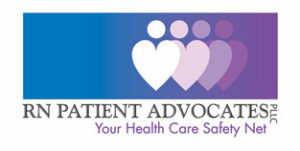
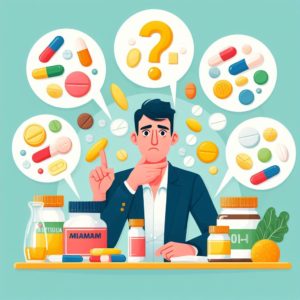 Did You Know that Some Medications Block Certain Vitamins and Minerals?
Did You Know that Some Medications Block Certain Vitamins and Minerals? 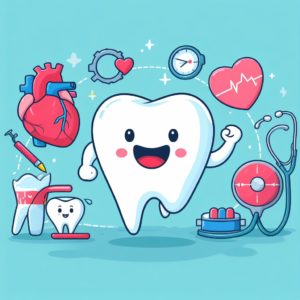 Healthy Mouth, Healthy Heart: The Importance of Oral Health for Cardiovascular Well-being
Healthy Mouth, Healthy Heart: The Importance of Oral Health for Cardiovascular Well-being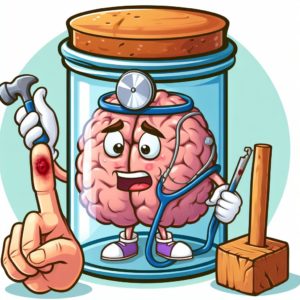
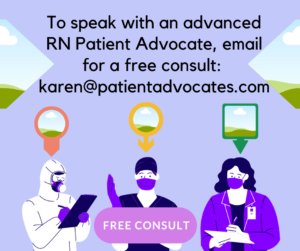
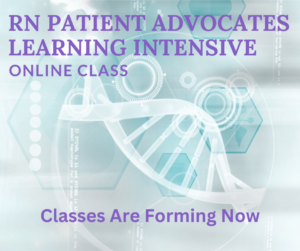
Recent Comments